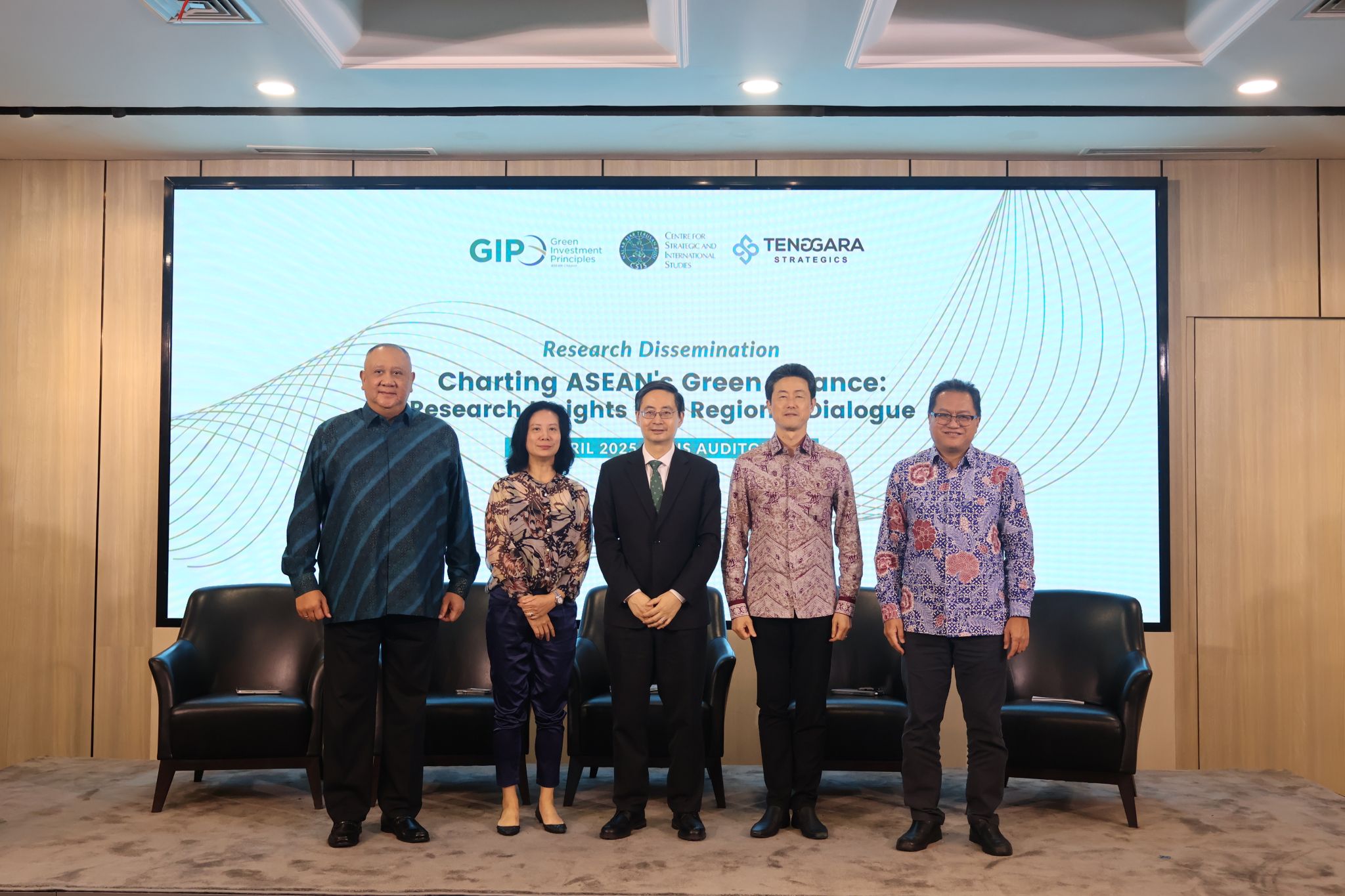
On 23 April 2025, Dr. Ma Jun - Founder and President of the Institute of Finance and Sustainability (IFS), Co-Chair of the Steering Committee of the Green Investment Principles for the Belt and Road (GIP), and Chairman of the Capacity-building Alliance of Sustainable Investment (CASI)—delivered a keynote address at the GIP green finance event on Green Finance Landscape in ASEAN, held in Jakarta, Indonesia. Co-hosted by CSIS Indonesia and the GIP ASEAN Chapter, the event was an important effort in disseminating green investment principles, featuring the launch of the report “Charting ASEAN’s Green Finance: Research Insights and Regional Dialogue” authored by CSIS and the GIP ASEAN Secretariat.
Dr. Ma emphasized the growing momentum behind green finance in ASEAN and the importance of regional collaboration in accelerating the low-carbon transition. He highlighted key priorities, including the development of harmonized taxonomies, the scaling of transition finance to support decarbonization, and the interconnection of carbon markets to unlock cross-border opportunities. He extended an invitation to Indonesia’s Financial Services Authority (OJK) to collaborate on the future development of the Multi-jurisdiction Common Ground Taxonomy (MCGT), and encouraged further partnership through CASI—launched in 2023 alongside the GIP ASEAN Chapter—to strengthen capacity building for sustainable investment across the region.
During the panel discussion, Dr. Ma underscored that revenue considerations need to be taken into account when designing adaptation projects and nature-based solutions, in order to enhance project bankability and attract private sector participation. By integrating revenue-generating elements into projects, one can reduce the reliance on government subsidies, unlock financing options, and scaling impact.
As China’s green finance framework evolved over the past decade—from a focus on pollution control to a strong emphasis on decarbonization—a significant portion of green loans and bonds now supports renewable energy and low-carbon infrastructure. Dr. Ma expressed optimism that ASEAN, with a very favourable demographic trend, will see rapid growth of green financing and green economy in the coming decade, if the right policy framework is put in place.
Other speakers at the forum, including Mari Pangestu, Vice Chair of National Economic Council and Chair of GIP ASEAN Chapter, highlighted the importance of identifying gaps in sustainable finance, developing blended finance solutions, promoting regional interoperability of standards and carbon markets, and enhancing efforts on capacity building across the ASEAN region.
This research is supported by the Sustainable Infrastructure Programme in Asia (SIPA), the International Climate Initiative, and German Environment Ministry.

